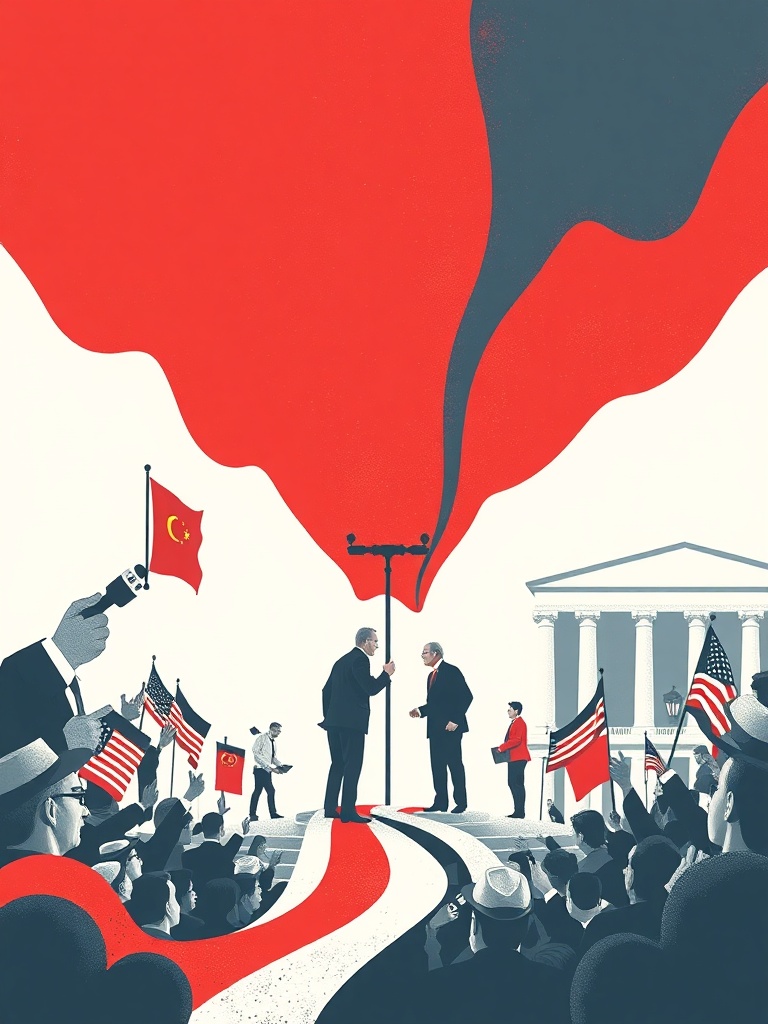How to Reduce Political Polarization: Practical Reforms and Civic Steps to Rebuild Trust
Political polarization is shaping public life and governance around the world, making compromise harder and raising the stakes of everyday civic interactions.
Understanding what fuels polarization, why it matters, and which practical steps can ease tensions is essential for healthier politics and more effective policymaking.
Why polarization persists
Several forces work together to harden political divisions. Media fragmentation and algorithm-driven social feeds amplify extreme voices and reward outrage, making it easy to live inside an echo chamber. Geographic and social sorting — where like-minded people cluster in the same neighborhoods, workplaces, and social circles — reduces everyday contact with differing views. Economic stress and cultural change heighten identity politics, turning policy debates into existential fights. Finally, electoral and institutional incentives often favor mobilizing a base rather than building broad coalitions, reinforcing a winner-take-all mentality.
Why it matters
High polarization leads to policy gridlock, erodes trust in democratic institutions, and increases the risk of political violence. When compromise is demonized, long-term problem solving — in areas such as infrastructure, climate, and public health — becomes difficult. Polarization also reduces the effectiveness of government and discourages civic participation among people who feel politics no longer reflects their interests.
Practical approaches to reduce polarization
No single reform will heal deep divisions, but a combination of institutional, civic, and cultural strategies can create space for more constructive politics.
– Electoral and institutional reforms: Changing incentives in elections can reward moderation and coalition-building. Options include open or nonpartisan primaries, ranked-choice voting, and independent redistricting.
These changes encourage candidates to appeal to a wider electorate rather than a narrow partisan base.
– Strengthen local journalism and information ecosystems: Independent local newsrooms and reliable fact-checking reduce the spread of misinformation and provide shared facts that form the basis for debate. Supporting diverse media sources and promoting transparency in political advertising can rebuild common ground.
– Promote civic education and media literacy: Teaching critical thinking, how to evaluate sources, and how democratic institutions work helps people distinguish propaganda from responsible reporting and encourages informed participation.
– Expand cross-partisan civic engagement: Structured opportunities for respectful dialogue — such as community deliberative forums, citizens’ assemblies, and town halls focused on problem solving — allow people to interact across divides and discover areas of agreement.
– Reform political finance and transparency: Reducing secret funding and improving disclosure of donors makes it harder for extreme actors to manipulate discourse. Public financing models and stricter lobbying transparency can shift incentives toward public-interest solutions.
– Encourage leaders to model civility and nuance: Elected officials, civic leaders, and influencers can lower temperatures by avoiding demonization, acknowledging uncertainty, and emphasizing shared values when possible.

What individuals can do
Everyday choices matter.
Seeking out a range of news sources, participating in local civic life, and engaging in respectful conversations across lines of difference all help.
Volunteering with nonpartisan civic groups or attending community meetings provides practical ways to build ties that transcend political labels.
The path forward requires sustained commitment from institutions and citizens alike. While polarization is driven by broad structural forces, incremental reforms and collective civic practice can open space for compromise, rebuild trust, and restore the capacity of democratic systems to solve complex problems.